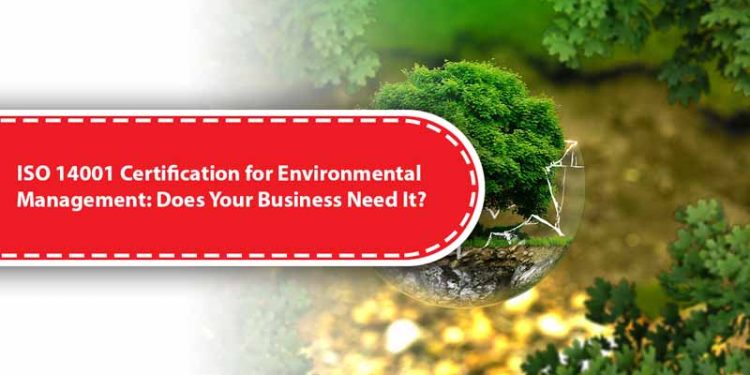Environmental consequences such as the release of greenhouse gases, solid waste disposal in lands, contamination of groundwater, etc., have become rampant in almost all sectors. Due to this, environmental awareness and management of environmental impacts have become an inevitable part of the business strategy. Business today can no longer afford to overlook their environmental consequences because they not only affect their surrounding society, future resources sustainability, but also damage their corporate reputation. To show your company’s commitment to preventing or controlling environmental impacts, you can meet the ISO 14001 environmental management standard. It is the ISO standard that plays a pivotal role in helping organizations to improve their environmental performance and boost their reputation.
If you are new to this ISO standard and are not sure how to achieve this standard, below you will find some reasons for achieving said standard. Apart from enabling a business to control its environmental impacts, it also increases your competitiveness in the market and helps it improve financial gains.
Key Reasons Your Business Should Have the ISO 14001 Environmental Management Standard
Become Environment Friendly
The ISO 14001 standard provides guidelines and regulations for the establishment of the Environmental Management System (EMS). With the EMS, you can introduce methods and practices that reduce the impacts of your business activities, reduce waste, promote reuse/recycling of wastes, and use resources judiciously. In short, the EMS will provide you with effective measures to operate your business in an environment-friendly way and protect the natural resources including energy sources.
Gain a Market Share Due to Competitiveness
ISO 14001 standard has a direct positive impact on the brand image and competitiveness of your business. It is an internationally known standard and hence, getting the certification will add recognition to your business which will directly help to increase your chances of winning contracts. Being certified will also make your business eligible to apply for and win large contracts with multinational organizations, giant corporations, and or public sector organizations. Thus, the ISO 14001 acts as an influential tool for businesses to gain access to new markets and business opportunities.
Improvement of Environmental Compliance in the Supply Chain
After getting the ISO 14001 certified, you also need to ensure that the suppliers or other partners in your supply chain are following the same environmental practices. All the raw materials and supplier processes are directly related to the final products or services. Thus, any environmental impacts caused by the supplier processes or raw materials will also affect the environmental performance of your business. Therefore, along with getting certification, you also need to make sure that all your suppliers are obligated to meet the environmental regulations.
Reduce Costs and Improve Profit
ISO 14001 leads to the establishment of an effective EMS which helps at reducing the costs in various ways. Firstly, it leads to savings in your electricity and energy bill due to conscious consumption of both across all your business processes. Secondly, it saves costs by reducing the amount the waste that must be treated or disposed-off through different methods. Thirdly, proper environmental practices through the EMS saves your organization from being exposed to legal issues, fines, and or penalties due to non-compliance with environmental laws. Therefore, any type of cost savings will have a direct impact on the profitability of your business.
Key Takeaway
The ISO 14001 environmental management standard is a strategic need for businesses to demonstrate their compliance with the international environmental regulations and gain a reputable position in the market. Even though it is not a legal or mandatory requirement for the business, every company should choose to have it to promote practices for environmental protection and get the advantages like improved competitiveness, winning of contracts, increased financial gains, and improved relationship with the stakeholders.













